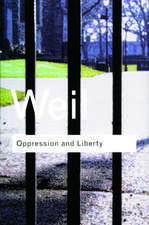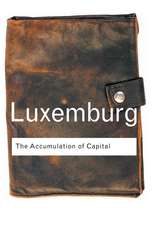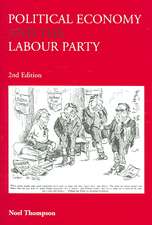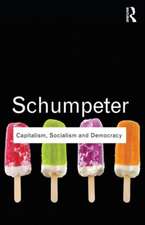Digital Labour and Karl Marx
Autor Christian Fuchsen Limba Engleză Paperback – 7 mar 2014
| Toate formatele și edițiile | Preț | Express |
|---|---|---|
| Paperback (1) | 427.22 lei 6-8 săpt. | |
| Taylor & Francis – 7 mar 2014 | 427.22 lei 6-8 săpt. | |
| Hardback (1) | 1282.53 lei 6-8 săpt. | |
| Taylor & Francis – 11 noi 2013 | 1282.53 lei 6-8 săpt. |
Preț: 427.22 lei
Nou
Puncte Express: 641
Preț estimativ în valută:
81.76€ • 88.78$ • 68.68£
81.76€ • 88.78$ • 68.68£
Carte tipărită la comandă
Livrare economică 23 aprilie-07 mai
Preluare comenzi: 021 569.72.76
Specificații
ISBN-13: 9780415716161
ISBN-10: 0415716160
Pagini: 424
Ilustrații: illustrations (black and white)
Dimensiuni: 152 x 229 x 22 mm
Greutate: 0.56 kg
Ediția:1
Editura: Taylor & Francis
Colecția Routledge
Locul publicării:Oxford, United Kingdom
ISBN-10: 0415716160
Pagini: 424
Ilustrații: illustrations (black and white)
Dimensiuni: 152 x 229 x 22 mm
Greutate: 0.56 kg
Ediția:1
Editura: Taylor & Francis
Colecția Routledge
Locul publicării:Oxford, United Kingdom
Public țintă
Postgraduate and UndergraduateCuprins
1. Introduction 2. An Introduction to Karl Marx's Theory 3. Contemporary Cultural Studies and Karl Marx 4. Dallas Smythe and Audience Labour Today 5. Capitalism or Information Society 6. Digital Slavery: Slave Work in ICT-Related Mineral Extraction 7. Exploitation at Foxconn: Primitive Accumulation and the Formal Subsumption of Labour 8. The Division of Labour of the New Imperialism: Work in the Indian Software Industry 9. The Silicon Valley of Dreams and Nightmares of Exploitation: The Google Labour Aristocracy and its Context 10. Tayloristic, Housewifised Service Labour: The Example of Call Centre Work 11. Theorising Digital Labour on Social Media 12. Digital Labour and Struggles for Digital Work--The Occupy Movement as a New Working Class Movement? Social Media as Working Class Social Media? Glossary
Recenzii
"Fuchs has written a rigorous, passionate, and deeply humane book... He successfully manages to demonstrate the need to revisit Marx's work in relation to digital labour... The book is demanding, yet suitable for both dedicated Marxist scholars and readers who are less well read in Marx's work. Fuchs is thorough in detailing his reading of Marx, which can be welcome for newcomers to the field, while the argument itself and the application of Marx's work will sustain the attention of those who are better versed in the quoted texts."
- Vladimir Rizov, University of York, Marx and Philosophy Review of Books
- Vladimir Rizov, University of York, Marx and Philosophy Review of Books
Descriere
How is labour changing in the age of computers, the Internet, and "social media" such as Facebook, Google, YouTube and Twitter? In Digital Labour and Karl Marx, Christian Fuchs attempts to answer that question, crafting a systematic critical theorisation of labour as performed in the capitalist ICT industry. Relying on a range of global case studies--from Chinese workers at Foxconn Shenzhen to miners in the Democratic Republic of Congo--Fuchs sheds light on the labour costs of digital media, examining the way ICT corporations exploit human labour and the impact of this exploitation on the lives, bodies, and minds of workers.
Notă biografică
Christian Fuchs is professor of social media at the University of Westminster in London. He is the author of more than 180 academic publications in the fields of Internet studies, social media studies, critical social theory and information society studies. Among his publications are the books, Internet and Society, Foundations of Critical Media and Information Studies, and the collected volumes, Internet and Surveillance: The Challenges of Web 2.0 and Social Media and Critique, Social Media, and the Information Society.













